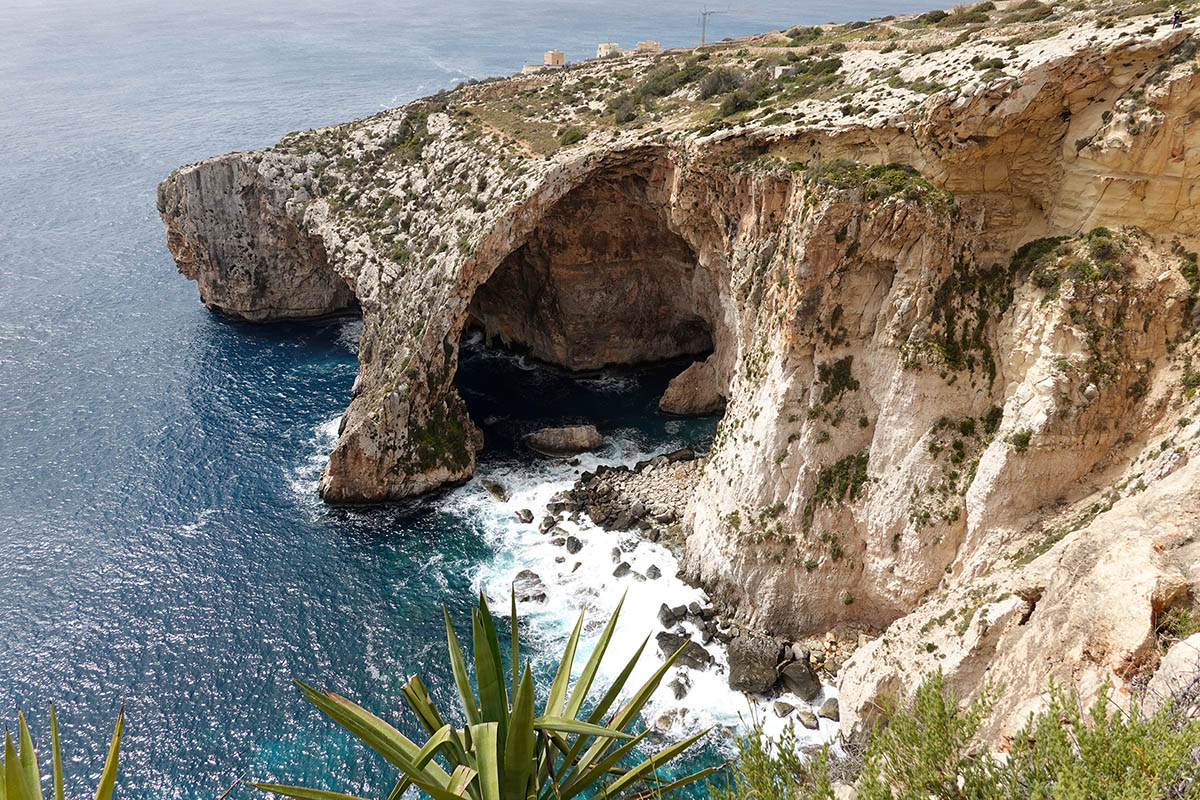When we think of Malta, perhaps nothing immediately springs to mind, except for vague notions of sandy beaches and blue Mediterranean waters. Malta in fact is an intriguing mix of cultures, having spend much of its history conquered by other countries, only gaining its independence in the 1960s.
We explored the islands as guests of Visit Malta, to mark the start of direct Ryanair flights from Shannon to Valletta.
We managed to pack a lot into three days but I’d suggest that the delights of the islands should be enjoyed at a more leisurely pace. With two flights a week, it would be easy to tailor the perfect trip.
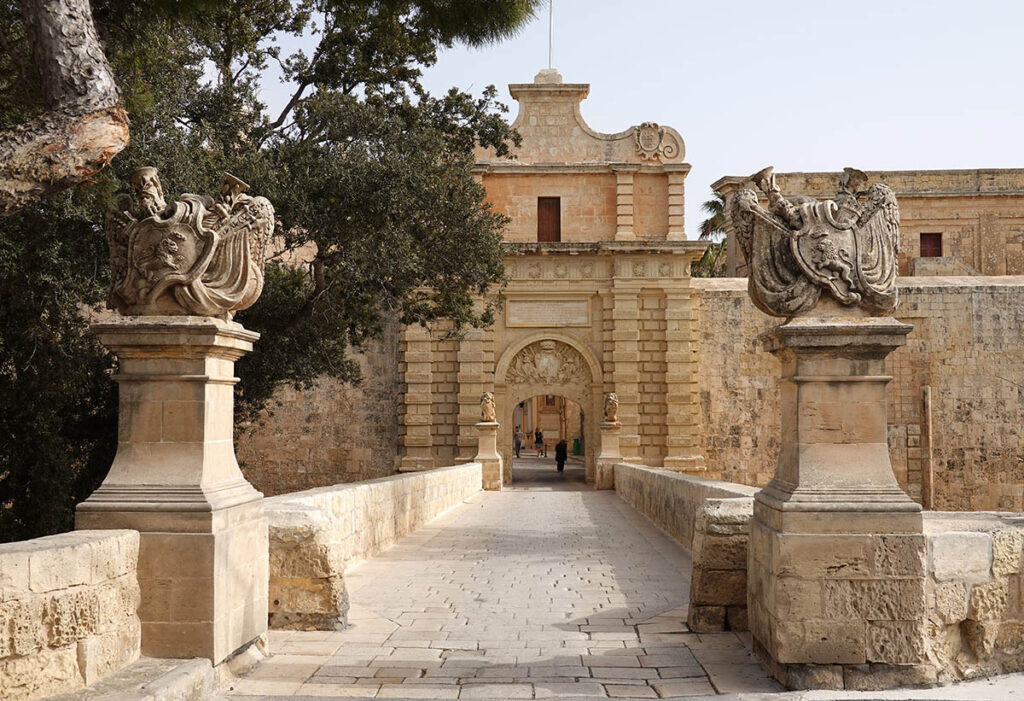
Malta’s first capital, Mdina, gives the feel of an open air museum, with its narrow, traffic free streets and mix of architectural styles, dating back to medieval times. The ramparts impart breath-taking views of the surrounding countryside and there are plenty of places to sit with a coffee and watch the world go slowly by. There are catacombs to visit too in the more modern town just outside Mdina, but we chose instead a more leisurely coffee.
Lunch was a relaxing affair at a small restaurant by the sea after looking at the Blue Grotto, carved by the sea over centuries.
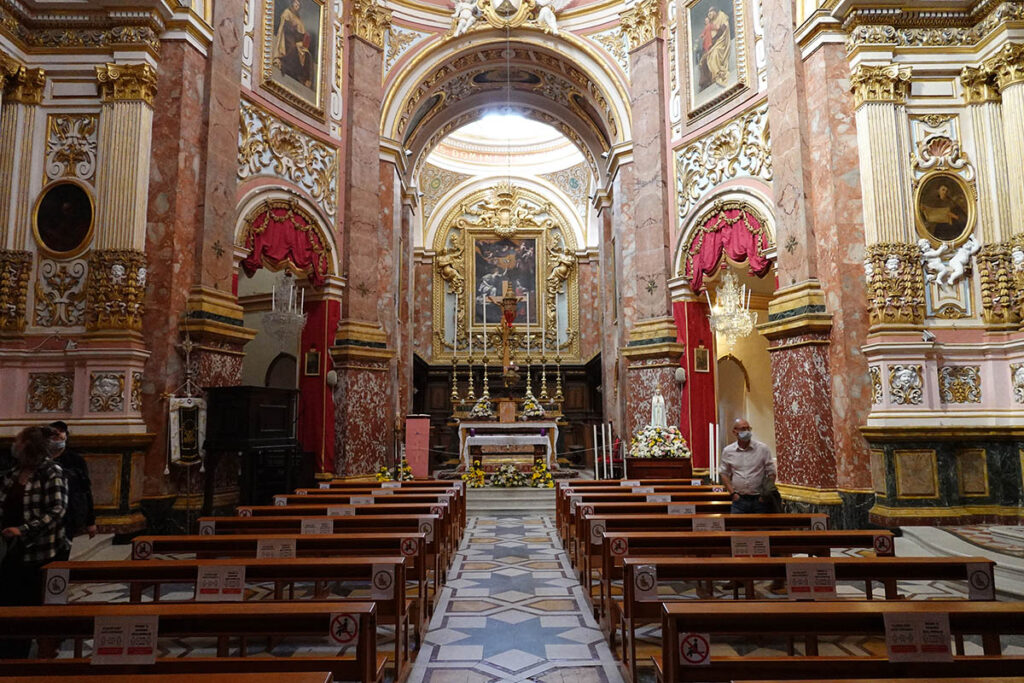
Food is something the Maltese take very seriously. At every meal, beautiful bread is served and there’s usually an array of seafood, meats and vegetarian options, no matter where you choose to dine.
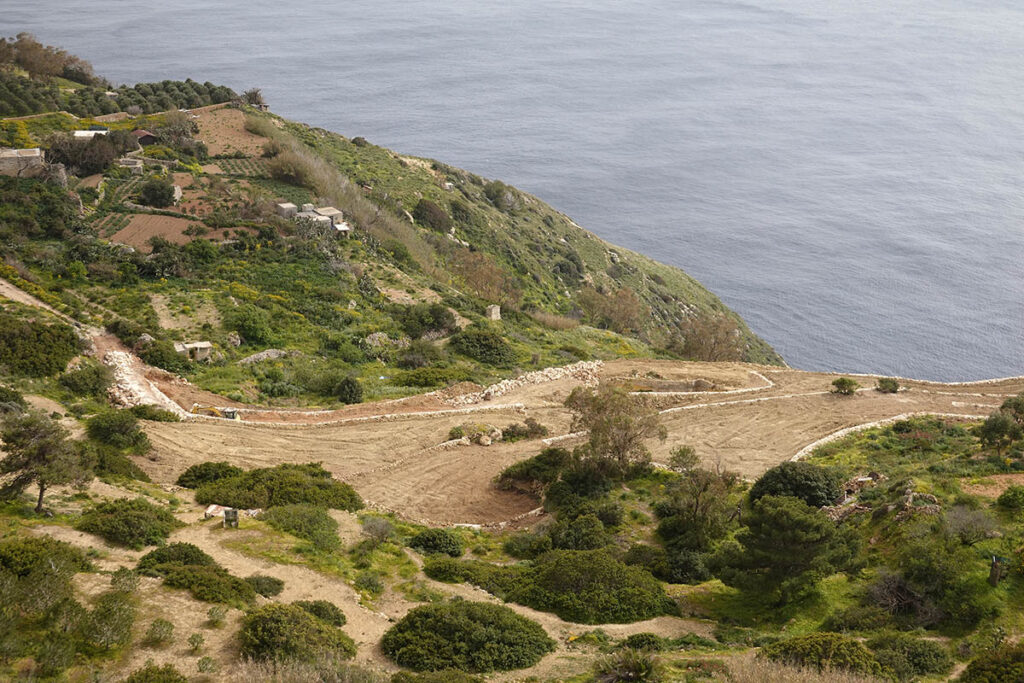
After dining, it was time to take some gentle exercise with a Segway tour to the Dingli Cliffs, the highest point on Malta. They’re not quite as impressive as the Cliffs of Moher, but the views from the top were well worth the trip. And who doesn’t like messing around on a Segway?
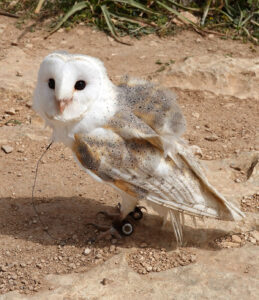
Perhaps it was better to get the Segways over us before visiting the San Niklaw Winery. You’d think Malta would have good wine, but for a long time, that wasn’t the case. High duties on imported wine led to complacency for many years but now some excellent local wines are being produced. San Niklaw is a small winery, operated by one of the top paediatric surgeons on the island. It’s a real family affair as John Cauchi runs the business with his two brothers. We tried a Vermentino with Sardinian grapes, their 2012 Sangiovese and a delightful 2014 Syrah, labelled Contrada da Fangio, which inevitably led to a chat about Formula 1.
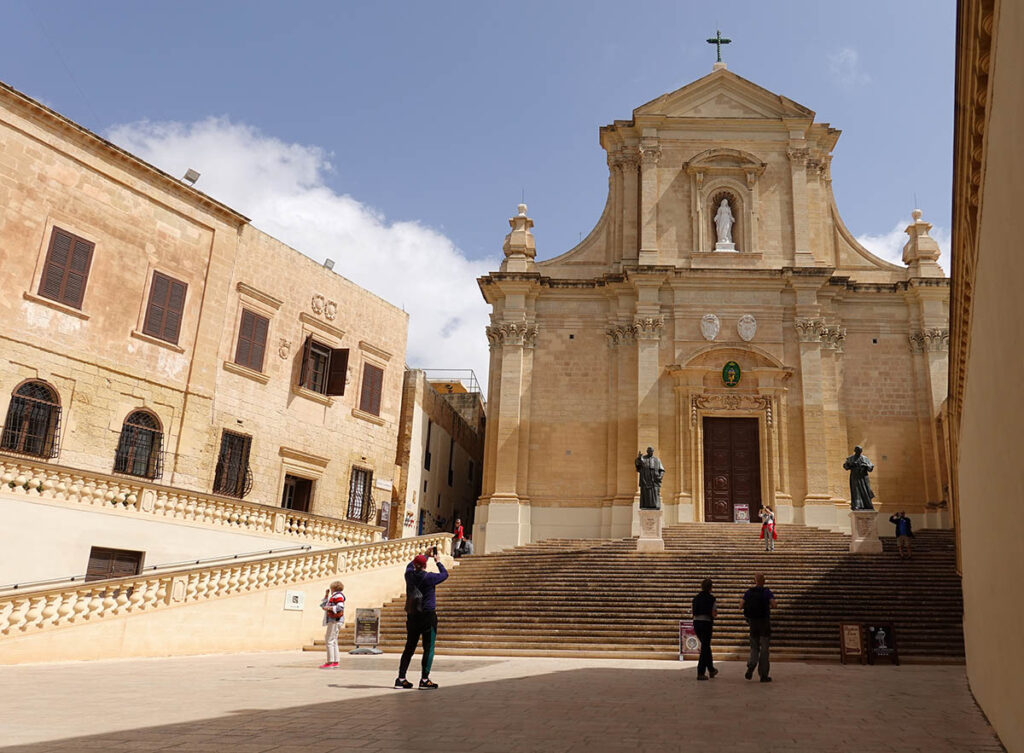
The next day, we caught the ferry to Gozo. Smaller than the main island, it has a more bohemian reputation and a lot of artists make the island their home. It’s also said to have a church for every day of the year.
Church matters are still taken seriously on Malta, with each village having one or two festivals each year dedicated to a local saint. There’s even rivalries between the various festivals, in one case at least involving supporters of the Madonna in White in serious competition to those who support the Madonna in Blue. It’s the same Madonna they’re talking about.
We took the car ferry from the North of the Island but there’s also a fast passenger boat which operates from the capital, Valletta, so Gozo is easy to reach. As befitted the more laid-back vibe of the island, our transport was a tuktuk, which pottered us around the island in good style.
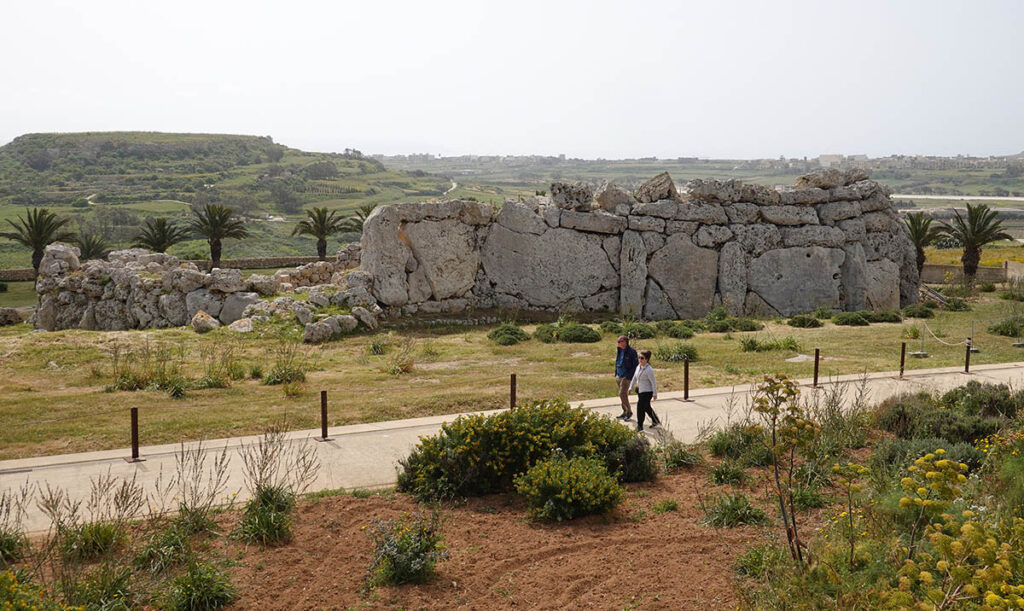
Our first stop was the magnificent temples of Ggantija, the oldest man made structures known to exist anywhere in the world.
The temples are now a Unesco World Heritage site and their purpose appears to have been a place of worship and animal sacrifice. It’s amazing to think that these walls have survived down the ages, even when you consider how often Malta has been conquered.
Rabat, the capital of Gozo, also known as Victoria, is a charming, old style town that’s well worth a visit. We went on to walk around the Citadel and climb its ramparts for a breathtaking view of the surrounding countryside.
Lunch was at Ta’Rikardu, a charming little restaurant run by a chef/owner who also farms all the produce – talk about local provenance.
We left the choice of food to those better qualified than us and experienced one of the best lunches I’ve ever had.
As a result of lunch raging out of control, we had a rushed visit to one of the first breweries to set up on Gozo. The original plan was to establish the brewery at Fort Chambray, near the harbour. When that didn’t happen, the only thing that was kept was the name, Lord Chambray.
The brewery has an interesting range of beers including a coconut stout and a beer based on a classic Manhattan cocktail. Well worth a visit.
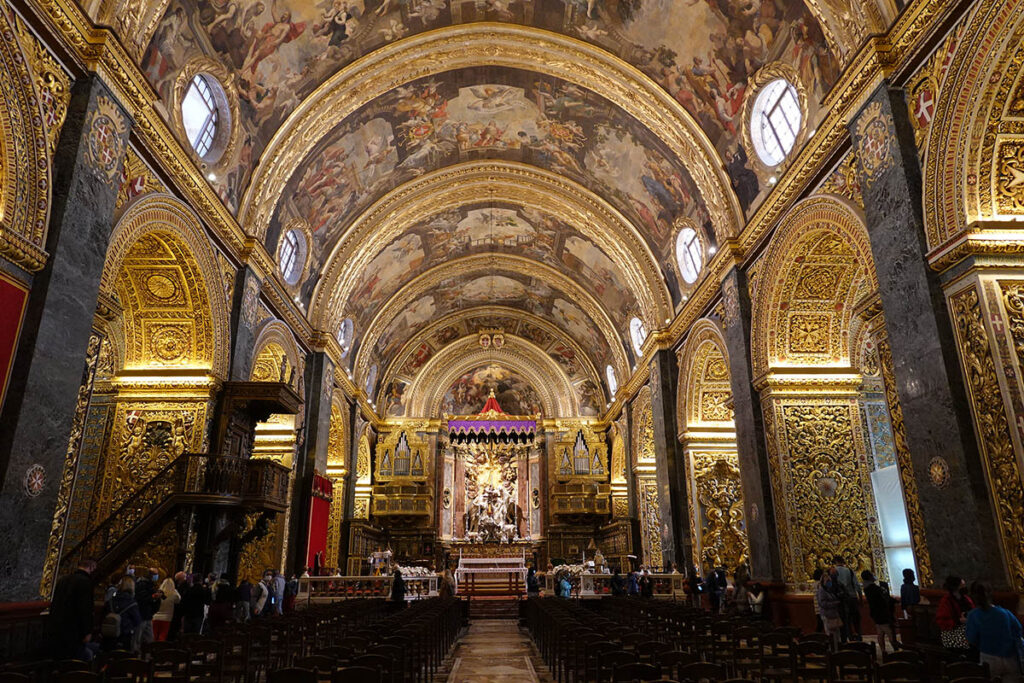
Our last full day in Malta was spent touring the capital, Valletta. Despite it’s apparent size, the population is only around 10,000 or so, but it’s a surprisingly lively, cosmopolitan city with history at every turn and a range of eating options, including up to Michelin standard.
Founded by the Knights of Malta, who deemed Mdina to be too far from the sea to serve as the capital city, it was designed on a grid pattern for defensive reasons. What this means is that you can see the sea from almost every street corner, a nice feature of any city.
St John’s Co Cathedral is the equal of any cathedral I’ve ever visited. It looks quite ordinary from the outside but the interior is richly decorated with gold leaf and some quite magnificent paintings.
Chapels down each side are dedicated to various countries, with the Italian chapel until a few years ago housing one of Caravaggio’s masterpieces, Saint Jerome Writing. After it was stolen and recovered in the 1990s it was decided not to rehang it, but not to worry, it’s just in the next room where it’s easy to get up close to it.
Caravaggio was a bit of a lad, who was lucky to get the painting gig on Malta as he got involved in a brawl in Rome, which resulted in a death sentence for murder, forcing him to flee to Naples and then onto Malta, where he painted his two most famous pieces, Saint Jerome and The Beheading of Saint John the Baptist, both of which can be seen in the Co-Cathedral.
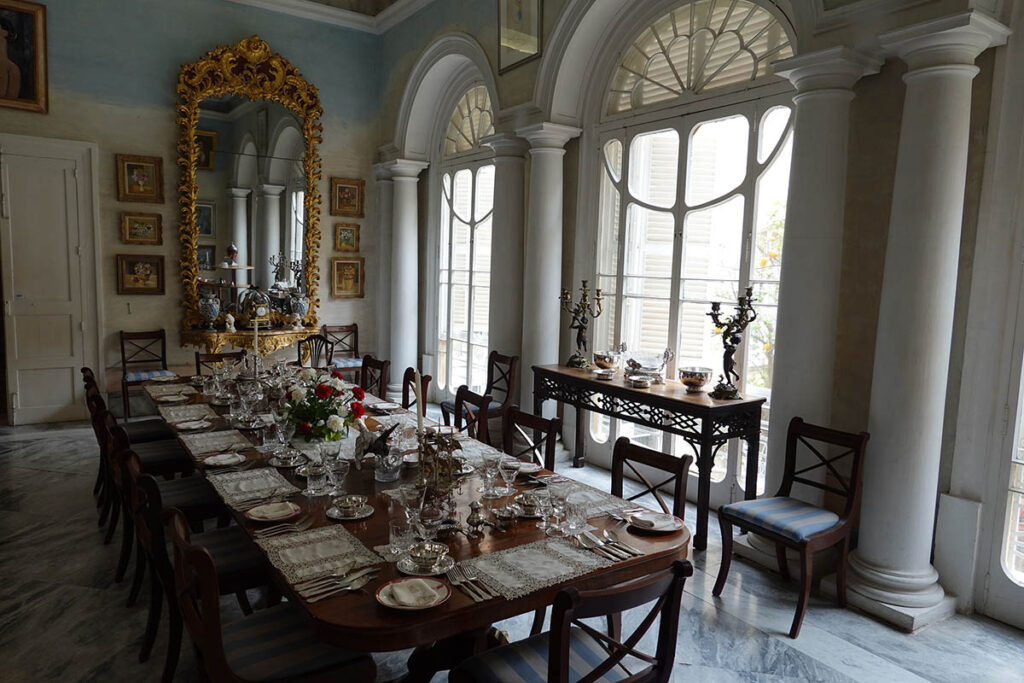
Just down the road is Casa Rocca Piccola, a typical house of a rich Maltese family which has been repurposed as a living museum. It even has a resident Macaw, the colourful Kiku, who has his own instagram account.
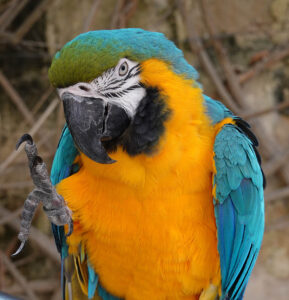
The final part of our whistle stop tour of Valletta was a quick tour around an area called The Three Cities, which lie across the harbour from Valletta itself. Instead of taking a taxi, we took an infinitely more scenic boat across the water. These boats look a bit like gondolas but have an outboard motor and our boatman was Frankie O’Hara, whose grandfather came from Cork. It was amazing how many people we met on the island who had Irish connections.
Before heading off on our tour, one of the highlights of the visit was a Taste History at the Maritime Museum. This is available to anyone who wants to experience it and it attempts to recreate a typical meal from a period in history. We were served a frittata with pasta topped with ground tuna roe, followed by a capon stuffed with chestnuts and cranberries. To finish, a delicious coffee vanilla sorbet.
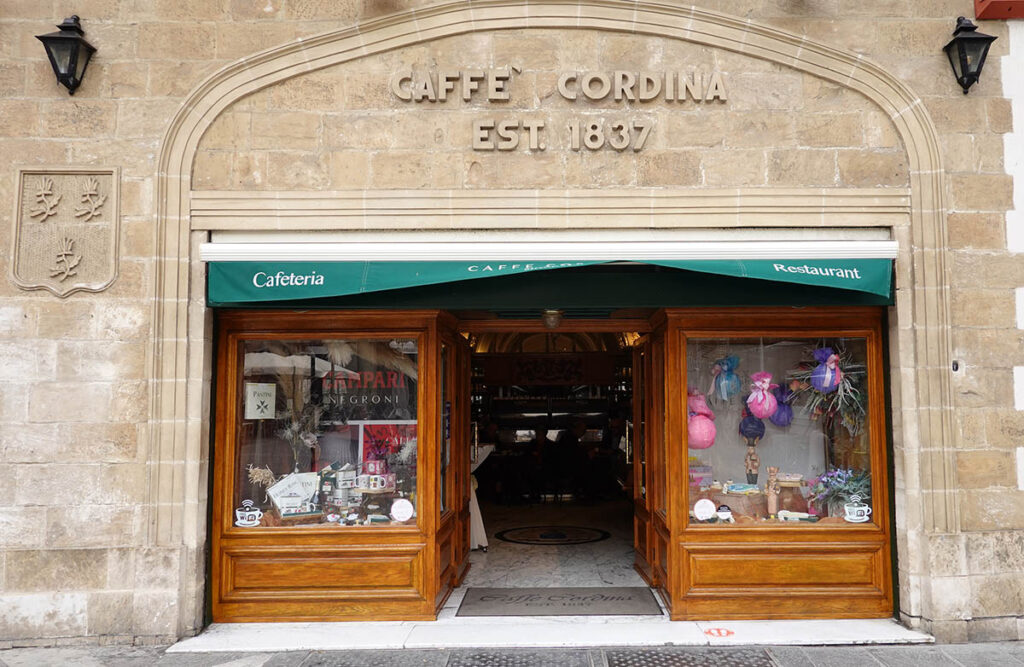
It set us up nicely for our tour in self-drive electric buggies. Rolling Geeks operate these glorified golf buggies, fitted with GPS and automated commentaries. You’ll need your driving licence and as I had the only one, I was the designated driver. It’s a nice way to see the city although as the driver, I hardly heard the commentary as I was too busy keeping an eye on traffic. The maximum speed of the things was only 20km/h and with no suspension, you’re constantly on the lookout for potholes.
Our final dinner was at our hotel, the very comfortable Corinthia Palace. As we had an early start the following morning, we though it might be a simple affair, but no, it started with an array of traditional Maltese starters and went on from there. It was another late night of eating, yet another reminder of the hospitality we experienced during our whole visit.
That was the big takeaway – the friendliness of the people and their enthusiasm for their beautiful islands.
May would be a particularly good time to visit before the summer really kicks in, making the temperatures unbearable. Malta is a beautiful country to visit, with a rich history, beautiful scenery and a friendly population. What’s not to love?


